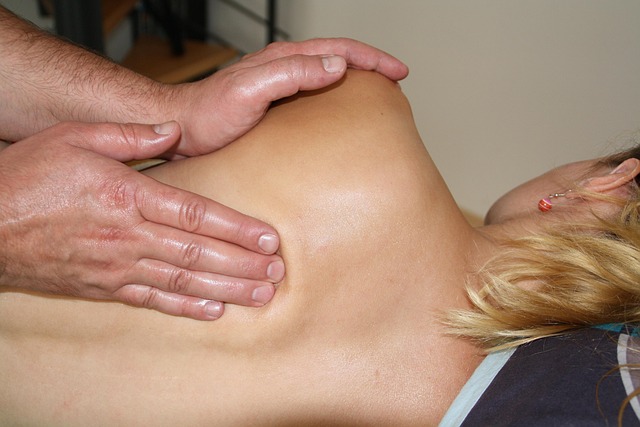Mindfulness, through present-moment awareness and non-judgmental acceptance, strengthens mind-body connection, reduces stress, and improves overall well-being. Mindfulness-based Stress Reduction (MBSR), an 8-week program combining meditation, cognitive therapy, and home practices, effectively treats anxiety, depression, and chronic stress. Regular mindfulness exercises enhance emotional regulation, reduce cortisol levels, improve sleep, and promote resilience, making MBSR a powerful stress relief therapy. Accessible techniques like mindful breathing and integrating mindfulness into daily activities can significantly lower stress levels. Overcoming common challenges with shorter sessions, integrated practices, and dispelling misconceptions enhances the benefits of MBSR as a transformative stress relief therapy.
“Unwind and discover the power of mindfulness for stress relief with this comprehensive guide. We delve into the science behind stress, its profound impact on the body, and how Mindfulness-Based Stress Reduction (MBSR) offers a transformative approach to mental well-being.
Learn about the key components of an effective MBSR program, explore its numerous benefits, and discover simple techniques to incorporate mindfulness into your daily routine. Overcome challenges and misconceptions, and be inspired by real-life success stories that showcase the profound impact of this stress relief therapy.”
Understanding Mindfulness and Its Impact on Stress Relief

Mindfulness, at its core, is the act of focusing one’s awareness on the present moment, acknowledging and accepting feelings, thoughts, and bodily sensations. It’s a practice that encourages individuals to observe their experiences without judgment, fostering a deeper understanding of both the mind and body connection. When incorporated into daily routines, this simple yet powerful technique becomes an effective stress relief therapy.
The impact of mindfulness on stress reduction is backed by extensive research. By cultivating mindfulness, individuals can develop a greater sense of calm and emotional balance. This, in turn, helps to regulate the body’s stress response, reducing the production of cortisol—often referred to as the stress hormone. Mindfulness practices have been shown to decrease symptoms of anxiety and depression, improve sleep quality, and enhance overall well-being, making it an invaluable tool for managing modern life’s demands.
The Science Behind Stress and Its Effects on the Body

Stress, a ubiquitous part of modern life, triggers complex physiological responses in our bodies. When faced with stressful situations, our bodies release hormones like cortisol and adrenaline, preparing us for the so-called ‘fight or flight’ response. This evolutionary mechanism, while beneficial in acute stress scenarios, can have detrimental effects when chronic stress persists. Prolonged exposure to stress can lead to various health issues, including increased blood pressure, weakened immune system, and even mental health disorders like anxiety and depression.
The science behind stress relief therapy, such as mindfulness-based approaches, lies in its ability to modulate these physiological reactions. Mindfulness practices encourage individuals to observe their thoughts and feelings without judgment, fostering a sense of calm and grounding. By cultivating awareness of the present moment, these therapies help regulate the body’s stress response, reducing cortisol levels and promoting overall well-being. This scientific understanding underscores the power of stress relief therapy in transforming our relationship with stress and its profound impact on our bodies.
Introduction to Mindfulness-Based Stress Reduction (MBSR)

Mindfulness-based stress reduction (MBSR) is a structured program designed to help individuals manage and reduce chronic stress, anxiety, and depression through mindfulness practices. This evidence-based therapy has gained significant popularity due to its ability to offer long-lasting stress relief. MBSR combines traditional meditative techniques with cognitive therapy, enabling participants to develop a deeper understanding of their thoughts and emotions without judgment.
The program typically involves an 8-week course where individuals learn various mindfulness skills, such as body scan meditation, mindful breathing exercises, yoga, and walking meditation. These practices help foster a state of present-moment awareness, allowing people to detach from stressful thoughts and emotions. By regularly engaging in these techniques, MBSR participants can reduce the impact of stress on their bodies and minds, leading to improved overall well-being and quality of life.
Components of an Effective MBSR Program

An effective Mindfulness-Based Stress Reduction (MBSR) program typically comprises several key components designed to holistically address stress and promote mental well-being. Firstly, it emphasizes learning and practicing mindfulness techniques, such as meditation and mindful breathing exercises. These practices help individuals cultivate present-moment awareness, thereby reducing reactions to stressors.
In addition to mindfulness training, MBSR programs often incorporate cognitive therapy elements to challenge negative thought patterns and beliefs that contribute to stress. They also encourage participants to integrate these practices into daily life through structured home practices, fostering a sense of ongoing support and accountability. This comprehensive approach aims to equip individuals with practical tools for managing stress effectively, leading to improved overall mental health and quality of life.
Benefits of Practicing Mindfulness for Mental Health

Practicing mindfulness has emerged as a powerful tool for enhancing mental health and well-being. By focusing on the present moment, individuals can experience significant stress relief therapy benefits. Mindfulness meditation encourages a non-judgmental awareness of thoughts, emotions, and bodily sensations, fostering a deeper connection with one’s inner self. This practice helps to calm the mind, reduce anxiety, and improve overall emotional regulation.
Regular mindfulness exercises have been linked to decreased levels of depression and enhanced coping mechanisms. It enables individuals to respond rather than react to stressful situations, promoting better decision-making and resilience. Moreover, mindfulness practices can lead to increased self-awareness, leading to more meaningful relationships and a heightened sense of purpose. This ancient technique offers a natural and effective approach to managing stress, providing individuals with valuable skills to navigate the challenges of modern life.
Incorporating Mindfulness into Daily Life: Simple Techniques

Incorporating mindfulness into daily life is an accessible way to experience the benefits of stress relief therapy. Simple techniques such as mindful breathing, where one focuses on the sensation of air entering and leaving the body, can be practiced anywhere, at any time. This practice helps to calm the mind and reduce physiological symptoms of stress, like a racing heart or tense muscles.
Another easy exercise is mindfulness during everyday activities, like eating or walking. Paying attention to sensory experiences—the taste, texture, and smell of food, for example, or the feel of each step while walking—brings one into the present moment, fostering a sense of calm and grounding. These practices, when incorporated regularly, can significantly reduce stress levels and enhance overall well-being.
Overcoming Challenges in MBSR Practice and Common Misconceptions

Overcoming Challenges in MBSR Practice
Mindfulness-based stress reduction (MBSR) is a powerful tool for managing stress, yet it’s not without its challenges. Many people struggle to maintain consistent practice, often due to time constraints or finding it difficult to quiet the mind. It’s essential to remember that mindfulness is a skill that takes time and patience to develop. Starting with shorter sessions and gradually increasing duration can help overcome this hurdle. Additionally, incorporating MBSR into daily routines by associating it with activities like walking, eating, or even brushing teeth can make practice more accessible and less daunting.
Common Misconceptions about MBSR
A prevalent misconception is that mindfulness requires complete silence and stillness, which can be intimidating for beginners. However, modern interpretations of MBSR emphasize that mindfulness can be practiced in any moment, whether sitting quietly or walking briskly. Another false belief is that it’s a form of therapy aimed at eliminating stress completely, which isn’t realistic. Instead, MBSR focuses on developing coping mechanisms and fostering a healthier relationship with stress, allowing individuals to respond to challenging situations more effectively while promoting overall well-being.
Real-Life Success Stories: How MBSR Transformed Lives

In the realm of mental well-being, Mindfulness-based Stress Reduction (MBSR) stands out as a game-changer for many individuals seeking effective stress relief therapy. Real-life success stories from those who have embarked on this journey paint a vivid picture of transformation and improved quality of life. For instance, consider Sarah, a working professional buried under the weight of a demanding career and relentless deadlines. Through MBSR, she learned to cultivate mindfulness in her daily routines, allowing her to respond rather than react to stressful situations. This simple shift empowered her to manage anxiety, improve focus, and find moments of peace amidst chaos.
Another story is that of David, who struggled with chronic stress and its physical manifestations, such as frequent headaches and insomnia. Integrating MBSR into his self-care routine offered him a new perspective on managing stress. By practicing mindfulness meditation, he discovered the power of presence, learning to observe and accept his thoughts and feelings without judgment. This practice led to reduced stress levels, better sleep hygiene, and an overall improved sense of well-being. These narratives are not isolated cases; countless individuals have experienced similar transformations, highlighting the profound impact of MBSR as a proven stress relief therapy.
